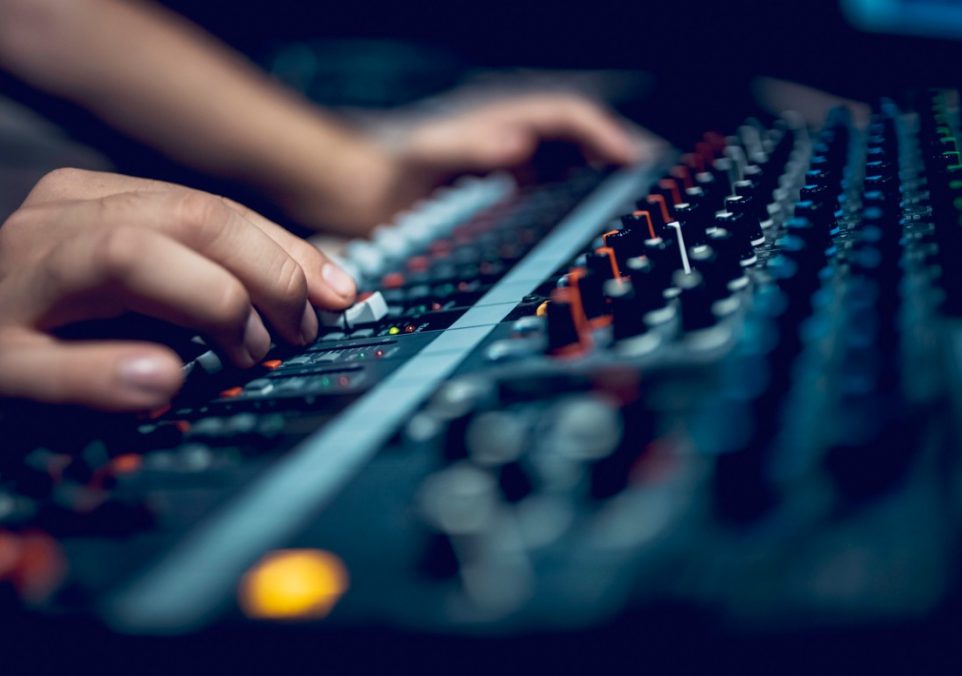Is an Audio Mixer the Same Thing as an Audio Interface?

When setting up a recording studio, most people get stuck on whether to use an audio mixer or an audio interface. Both devices may seem familiar, but their functions are actually quite different. This is why you must pick the right one for your studio. In this article, we will go into the details of what makes an audio mixer and audio interface different. This contrast will expand your audiophile knowledge and help you make a more informed choice when creating a studio of your own.
What Is an Audio Mixer?
An audio mixer is a device specializing in mixing sounds from multiple sound sources. It usually has a bunch of sliders and dials on it for various tasks such as reverb control, chorus, volume faders, and equalizers. Generally, mixers provide much more control over what gets sent to your computer as you can better tweak the audio manually.
What Is an Audio Interface?
An audio interface allows you to send audio from your mic to your computer for recording without having to worry about the sound quality going down. They are usually connected to your computer using Thunderbolt or USB cables. They also tend to have built-in preamps to amplify the sound from your mic. You can usually get 2 to 4 input channels on an audio interface.
Difference Between an Audio Mixer and an Audio Interface
Use
Audio mixers are commonly used for broadcasting, live reinforcement of sound, or streaming. This is because they are designed to mix a larger number of sound sources allowing you to manage more audio inputs.
On the other hand, audio interface devices can only handle a small number of audio sources. This is why they are more commonly used in personal studios with fewer sound sources.
Size
Size is an important factor to consider when setting up your studio since space is a precious resource. Although both mixers and interfaces come in varying shapes and sizes, mixers tend to be much bulkier. Audio interfaces tend to be small enough that you can carry them around or place them out of sight in a desk drawer. This makes them ideal for smaller studios.
Audio Effects
Most audio interface devices don’t come with any audio effect features. You can, however, still modify the sound afterward from your computer. Mixers, on the other hand, do come with many audio effects such as reverb, modulation, delay, and compression, to name a few. This is one of the reasons why mixers are so popular for use in live performances.
How Much Does an Audio Mixer Cost?
Good audio mixers can cost anywhere between $100 to $250. High-end options can go for as much as $500. The price of a mixer is usually determined by how many features it has and how many input sources it can support. It is best to opt for a reputable brand when buying audio mixers to ensure high quality.
How Much Does an Audio Interface Cost?
Audio interfaces, on the other hand, can cost between $50 to $150 depending on their build quality, sound quality, and features. You can also find budget options for less than $50.
Final Thoughts: Audio Mixer or Audio Interface?
Whether you should use an audio mixer or an audio interface solely depends on the kind of recording you want to do. If you need to input clear, top-quality audio into your computer to later be processed, then you should opt for an audio interface. Audio mixers, however, are the go-to option when it comes to a live event requiring live audio enhancement from many sources.
Your Trust, Our Core Commitment
At Rising Tech, earning and maintaining your trust is the cornerstone of our mission. We're dedicated to transparency, impartiality, and the relentless pursuit of truth in every article, review, and recommendation we publish. Our commitment to these principles ensures that you, our valued reader, are always equipped with reliable and unbiased information. Let us be your trusted guide in the ever-evolving world of technology.